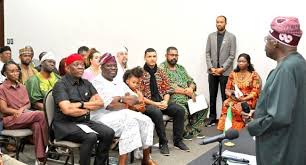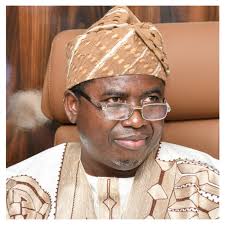By Jibrin Ibrahim
The highlight of President Tinubu’s visit to Brazil was the announcement by our Oga that there is no corruption any more in Nigeria today. He claimed that: “The reforms I’ve embarked upon since I took over in Nigeria have been very impactful. I can beat my chest for that. It was initially painful, but today the result is blossoming. It’s getting clearer to the people. We have more money for the economy… no more corruption,” Tinubu told his audience.
This is not the first time this claim has been made. In May last year, President Bola Tinubu spoke of his administration’s unwavering commitment to fighting corruption and recovering looted public funds, declaring that there will be no safe haven for corruption in Nigeria. The event was the Ministry of Justice Asset Recovery Summit in Abuja with the theme “Synergising Towards an Effective Assets Recovery and Management”. The President announced that: “Asset recovery sends a clear and unwavering message: there will be no safe haven for corruption in Nigeria.” He added that: “It is about restoring the people’s trust and ensuring that every kobo of our national wealth works for the common good.” He lamented the detrimental effects of corruption on national development, particularly in health, education, and infrastructure, stressing that repatriated funds are being reinvested into critical sectors to rebuild trust and promote equity under his watch.
Such statements remind me of George Orwell’s dystopian novel 1984 where truth becomes falsehood and vice versa. Maybe it is more relevant to recall Goebbels’s key principle of propaganda, that when you repeat a lie often enough, people will end up believing it as the gospel truth. Clearly, the President’s propaganda team has no hesitation about making claims without veracity. For the majority of Nigerians, however, there is a strong opinion that the current regime is one of the most corrupt in the nation’s history.
At the beginning of this administration, keen observers watched with consternation as a lot of former governors and officials investigated, and sometimes charged for corruption were appointed ministers by government. It was a clear message to the nation that Nigeria remains on its trajectory of each government being more corrupt than the one it succeeded. In May last year, while trying to characterise the administration, I published a column entitled – “Under Tinubu, Corruption is Fighting Back with Gusto.” I referred to Nuhu Ribadu, the former Chairman of the EFCC who told Nigerians so many years ago that if you fight corruption, it fights back. Today, as the same Nuhu Ribadu, supervises the security agencies, corruption has fought back with success.
The pattern is clear, there is an unfolding trajectory of backpedaling on the progress made by anti-corruption agencies previously. Essentially, the anti-corruption agencies have become weapons to bring down opposition elements rather than catch the corrupt. If politicians from other parties are moving in hordes to join the ruling APC, it is because the evidence is clear that government is determined to protect the corrupt ones. In addition, under Tinubu, judicial corruption has become a major challenge to anti-corruption work in Nigeria. The looters have repeatedly used their influence to manipulate the judicial process and system, to block and/or delay the arrest or prosecution of suspects. This blatant disregard for the rule of law has eroded public trust and reinforced the perception that Nigeria’s democracy is nothing more than a facade. Clearly, the judiciary is not living up to its responsibility of ensuring that the rule of law and provisions of the Constitution are upheld. They are complicit in the pro-corruption commitment of the regime.
There have been several allegations of judicial officers receiving bribes from politicians and politically exposed persons in-order to circumvent the law. This has watered down the respect, trust and confidence of citizens in the judiciary and negatively impacted the fight against corruption. Nigerians have witnessed too many situations where courts have granted injunctions which deterred anti-corruption agencies from inviting and prosecuting corrupt government officials and politically exposed persons.
One of the most important signifiers of rising corruption under this regime is the procurement of political appointments by treasury looters serving under the current administration as ministers, legislators, or occupying leadership positions of the ruling party. They have exposed anti-corruption work to serious setback and deliberate sabotage that cripple the efficiency of the anti-corruption agencies. It is distressing to see people facing corruption allegations being appointed by the President to handle various positions of authority. This has produced a culture of impunity, where politicians engage in corrupt practices without fear of consequences.
We recall that at the beginning of the Tinubu Administration, the Minister of Humanitarian Affairs was revealed to have simply emptied the treasury of her ministry and transferred the monies to private bank accounts. She was suspended but the promised prosecution never happened. That was a strong pointer that the new government was a deepening rather than rejection of public corruption. The President copied the tradition set by the Buhari Administration by retaining the petroleum portfolio and the legendary mega corruption at the NNPCL has continued with gusto.
The level of corruption has become so high that the entire society is being sucked into massive engagement with the system. One of the most dangerous developments in the country is the massive recruitment of young persons into different forms of criminality. These include traditional sectors such as political thuggery and cultism but also new sectors such as cyber-crimes and human and drug trafficking. More youths are daily becoming engaged in criminal activities including ritual killings, cyber-crimes, kidnapping, prostitution, robbery and banditry. In the process, the youth, whose collective future has been continuously mortgaged by our morally bankrupt and corrupt politicians are today taking their cues from the governing class and copying them.
To truly establish a flourishing democracy, transparency and accountability must be strictly adhered to in governance. This requires holding politicians accountable for their actions and inactions, strengthening institutions to combat corruption, and ensuring that the allocation of resources is done in a fair and equitable manner. Only through these measures can Nigeria overcome its socioeconomic challenges and build a democracy that truly serves the interests of the citizens. This, unfortunately ,is not the trajectory we are on.
The most accurate way to describe Nigerian politics today is that state and society have been captured by an efficient and ruthless criminal band that is recreating politics and the political economy in its image. On a daily basis, people are lamenting about the absence of rules, ethics and red lines in politics and the economy as the cabal in power do as they please and we the citizens watch and wonder whether it’s the new reality or a new rascally Nollywood production. The bold statement that corruption does not exist anymore is in a sense in character – promote falsehood without restraint.
*Jibrin Ibrahim is a columnist with Daily Trust and culled from the Global Upfront Newspaper









